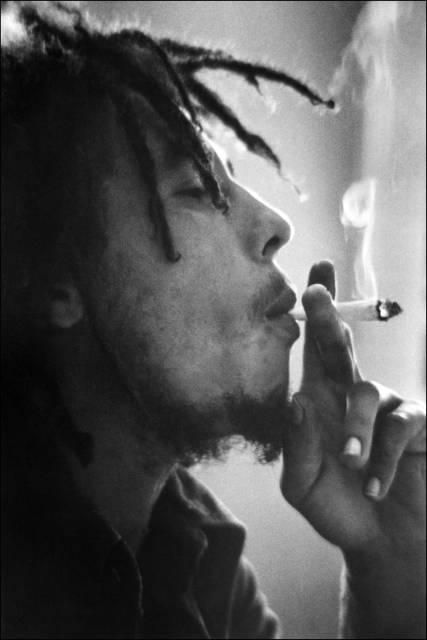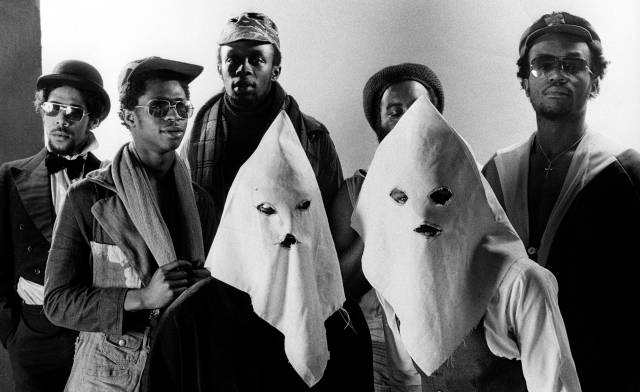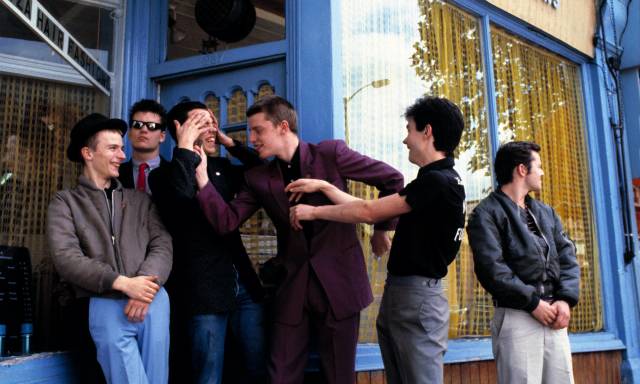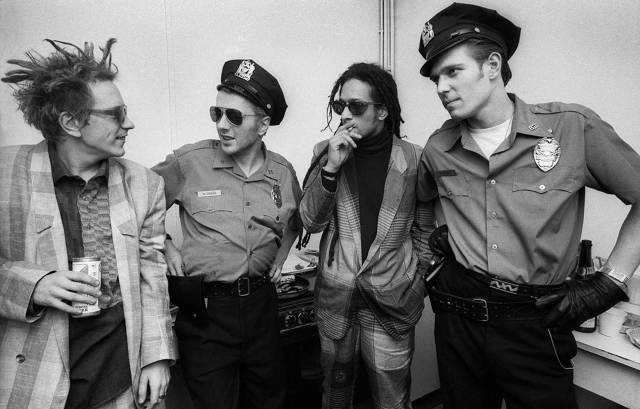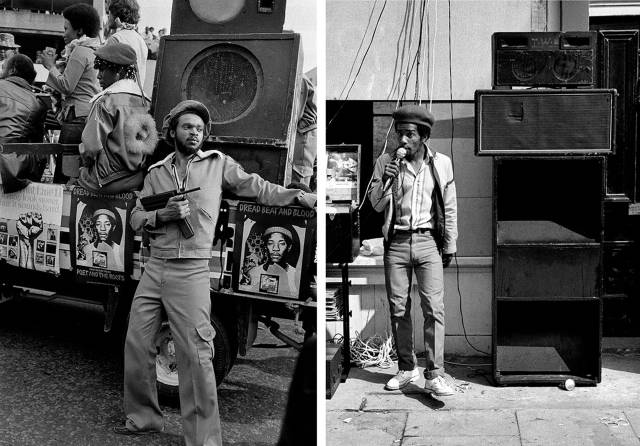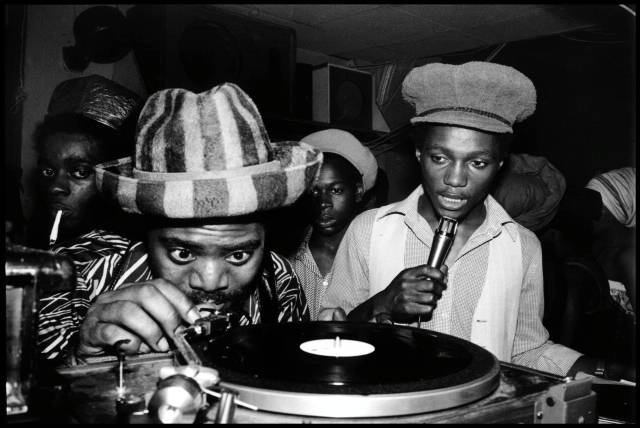Project framework: context, research questions, summary of research insights
The Bass Culture output brings together an exhibition, documentary film, online resource and book chapter with the aim of defining black British music and exploring its historical and cultural significance over six decades. It is the first major study of the history and impact of Jamaican-influenced music in the UK. As director of the University of Westminster’s Black Music Research Unit (BMRU), my research has involved locating, capturing and preserving memories, experiences and ephemera from three generations of musicians, music industry participants and audience members. The associated communities and networks have played a key role in transforming Britain into a multicultural society, yet their contributions have previously remained absent from the country’s cultural institutions.
The research outputs drew on original interviews, new and archival imagery to inform both a large-scale multimedia, interdisciplinary exhibition at Ambika P3, London, and a documentary film, made in partnership with youth-led media organisation Fully Focused Productions. Included are a wide range of oral testimonies and previously unseen images (representing over 50 years of London-based content) that explore and make manifest reference points connecting the influence of British sound-system culture to modern and contemporary music, fashion and cultural forms today. A foundation for the three-year AHRC-funded research can be found in my book chapter, ‘Bass Culture: An Alternative Soundtrack to Britishness’ (Stratton, J, and Zuberi, N (eds), 2014), which draws on my experiences as a black British musician of Jamaican heritage to contextualise the origins and emergence of black British music in the 1970s and 1980s against the racially charged socio-political backdrop of the era. The essay explores the music the children of migrants are exposed to (from mainstream radio to their parents’ heritage records) and the struggles faced by black British musicians seeking to establish their own sound within the UK. Drawing on my knowledge as a music industry professional, I chart the evolution of black British music from its early roots to contemporary grime.
Context
This project is situated within popular music studies and ethnomusicology and explores issues of cultural identity and musical heritage. Its starting point lies in my personal history and the questions, as a first-generation British-born Jamaican, I asked myself as a teenager in the 1960s: “Am I British or Jamaican – or both?” In the eyes of the world, whether from a British or a Jamaican standpoint, somehow I lacked authenticity. Through reggae music, however – and its accompanying historical and political narrative – I received an alternative education that enabled me, against the backdrop of the overt and covert racism of the era, to construct my identity.
Since the 1960s, British popular music has rightly been hailed as a global success story. What is missing in our academic and cultural institutions, however, is recognition of the influence of black British music on cultural discourse and creativity and general representation in recent historical narratives. Along with the British music industry, the museum sector has also failed to properly address the contribution of Jamaican communities to British pop music, leading to a distortion of that history. The exhibition output at Ambika P3 is one of the first to highlight the history of Jamaican music and its influence on the UK. Alongside initiatives such as the Black Cultural Archives in Brixton, the exhibition offered a new perspective from which that history might be told.
Since becoming director of Westminster University’s Black Music Research Unit in 2004, much of my work might be described as instigating an academic understanding of the term “bass culture”. With a nod to Linton Kwesi Johnson’s 1980 album and the title of Lloyd Bradley’s 2001 history of reggae, my use of the term is designed to highlight the direct and indirect influence of Jamaican communities and music on the culture and social fabric of multicultural Britain, including a canon of globally influential music. Although more recently music education has sought to include black British genres, British ska, reggae, drum and bass and grime continue to be regarded as peripheral.
In the current push both to recognise the impact of other cultures and to decolonise cultural institutions, Bass Culture provides new evidence to support a home-grown creative contribution that has largely remained outside museum collections and the consideration of the culture sector more generally. Critically, involving BME communities in the process of preserving their contributions was a primary objective. Activating communities in order to shed light on “lost” musical knowledge, to disinter hidden historical narratives and to preserve memories and ephemera – all with a view to “writing the story” of black British music into the practice of academic and cultural institutions – lies at the heart of our Bass Culture project.
Key questions
1 How has Jamaican music contributed to Britain’s transition into a multicultural society, particularly during the period 1976–1981?
2 How can primary memories and artefacts of Jamaican music in London be traced, preserved and communicated to future generations?
3 How has reggae music influenced British youth culture, in terms of vocabulary, behaviour, dress, dance and ethnic identity?
Summary of research insights
The Bass Culture research successfully united academics, museums and the African-Caribbean community in a series of projects that helped make visible the Jamaican contribution to British popular music and culture more generally, including fashion and urban style.
| Creators | Riley, M. |
|---|---|
| Description | As P-I for the AHRC project Bass Culture (£533,032), Riley’s research involves locating, capturing and preserving memories, experiences and ephemera from three generations of musicians, music industry participants and audience members. The associated communities and networks have played a key role in transforming Britain into a multicultural society, yet their contributions have previously remained absent from the country’s cultural institutions. The output components draw on original interviews, new and archival imagery to inform both a large- scale multimedia, interdisciplinary exhibition at Ambika P3 (Bass Culture 70/50, 2018), and a collaboratively produced documentary film (Bass Culture, 2018). Included are a wide range of oral testimonies and previously unseen images (representing over 50 years of London-based content) that explore and make manifest reference points connecting the influence of British sound-system culture to modern and contemporary music, fashion and cultural forms today. Riley’s book chapter (2014) draws on his experiences as a black British musician of Jamaican heritage to contextualise the origins and emergence of black British music in the 1970s and 1980s against the socio-political backdrop of the era. Riley devised a methodology for working together with wide-ranging collaborators to break down and classify areas of interest, without disenfranchising the participants or co-researchers. In creating the online resource, the project’s researchers were able to apply key categories that helped guide navigation of the complex layers of material, cultural and economic activity underpinning key values that were shared within the community, while mapping the contribution for academia. The Bass Culture project successfully united academics, museums and the African Caribbean community in a series of projects that helped make visible the Jamaican contribution to British popular music and culture and lay the basis for popular music teaching that more accurately reflects that influence. |
| Portfolio items | Bass Culture film |
| Bass Culture 70/50 | |
| Basscultureduk.com | |
| Bass Culture: an alternative sound track to Britishness | |
| Ticket Master State of Play Grime Report | |
| Jazz Jamaica All Stars: The Trojan Story - Live Event | |
| Year | 2014 |
| Publisher | University of Westminster |
| Keywords | CREAM Portfolio |
| Digital Object Identifier (DOI) | https://doi.org/10.34737/qqvqz |
